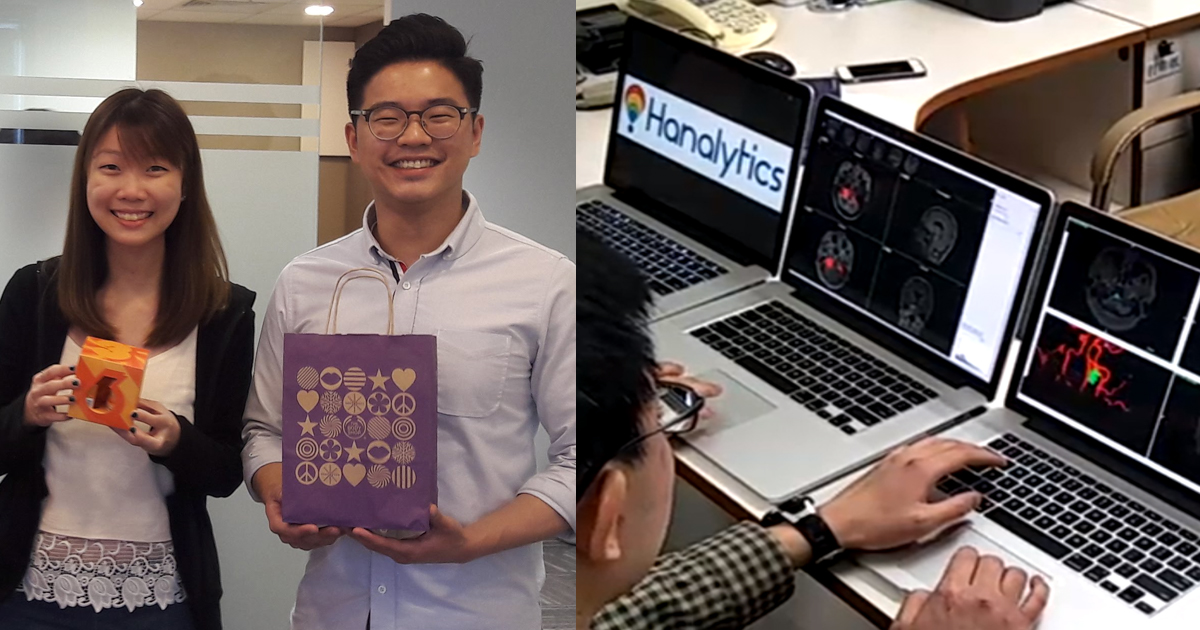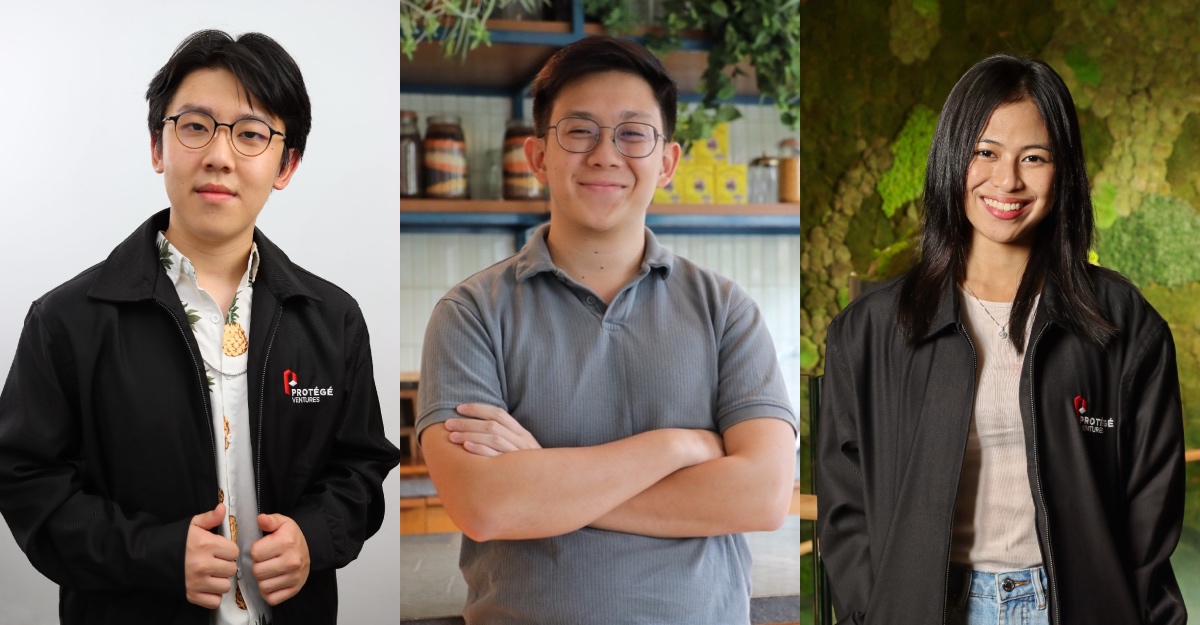Digital transformation is rapidly uplifting industries, and Singapore’s healthcare sector is also capitalising on the digital wave to transform its services.
Healthtech is a somewhat misunderstood industry, as some mistakenly think that one needs to have medical knowledge to work in the sector.
Today, with a huge number of over 500,000 Singapore residents aged 65 years or older, there is an urgent need to care for these older Singaporeans.
Health Minister, Mr Gan Kim Yong revealed in October 2016 that the health industry will require 30,000 more workers by year 2020 to keep up with the needs of the elderly – expected to swell to a daunting 610,000 by then.
The industry is thus using technology as a “multiplier” – so that existing healthcare workers can be more productive; accomplishing more with less effort and time.

To ensure that there are enough staff to support the demand, Singaporeans across all ages and experience levels are also encouraged to join the healthcare sector via various SkillsFuture WSQ training initiatives and study awards.
But hang on – doesn’t working in healthcare mean that one needs to have a degree in medicine or nursing?
Not at all.
When Finance And Mathematics Majors Delve Into Healthtech

We caught up with two Singaporeans, Lim Sze Chi (24) and Eugene Oei (29), both passionately working in the healthtech (application of technology in healthcare) sector – albeit not having any medical degrees.
The duo works at Hanalytics, a Singapore-founded big data analytics and artificial intelligence (AI) healthtech startup, as a Machine Learning Engineer and Software Engineer Associate respectively.
The company sets out to empower medical experts and doctors with advanced technologies built on deep learning techniques, which in turn helps to uncover insights and create predictive applications that can be used in healthcare.
After Hanalytics took part in a hackathon back in 2015, the startup received support from IHiS, Singapore’s healthtech agency, to further develop their idea.
Their choices of university degrees weren’t remotely related to their current jobs either – Sze Chi majored in Mathematics, while Eugene was a Finance major!
What were the initial driving forces behind their majors, though?
Sze Chi reveals that her love for numbers started in secondary school, while Eugene admits that he was “swayed by peers around [him]”.
However, it was also in his final year in university that he realised that Finance was not something he could see himself doing for long.
Sze Chi’s road to healthtech was also a big career switch, with her leaving as a financial risk consultant in a MNC to join Hanalytics, but regardless, the two of them have something in common – their quest for a job that has purpose.
Explains Sze Chi, “In university, I [was in] the NTU Welfare Services Club, organising volunteering events. It became habitual that my main source of motivation in the things I commit to, is purpose.”
I see purpose in the use of AI and data science to be transformed into a public good.
But why the final decision to go into machine learning and software development?
For Sze Chi, her interest in machine learning concepts developed during her undergraduate days – where she first learnt about them.
For Eugene, he took a liking to software development because of a module he took in university, where he learnt how to solve business problems using Visual Basics.
But going from fleeting interest to an (actually) applicable skill isn’t as straightforward as it sounds.
So it might come as a surprise that they didn’t need to undergo the lengthy process of getting a degree to clinch their current jobs.
Sze Chi learnt her skills online from Coursera and Udemy, while Eugene attended General Assembly Singapore’s (GA) Web Development Immersive Programme, completing the course in just 3 months!
That doesn’t mean that the course isn’t as rigorous as its years-long counterparts.
Shared Eugene, “On paper, the course is Monday to Friday, 9am – 6pm. But the amount of time and effort you have to put into the course work is way more than that!”
“I was very much trying to brush up my knowledge before and after classes, doing assignments given to us and tackling coding challenges.”
On The Job: Challenges And Wins
When asked about their experience at Hanalytics so far, both of them agreed that a great work culture was what stood out for them.
Gushed Sze Chi, “I like how everyone here embraces growth and is always forthcoming to provide help!”

Both also let on that the company conducts weekly advisory sessions with professors from MIT, Harvard, and NUS, to keep them abreast with “state-of-the-art AI publications”.
However, they admitted that they had encountered hiccups at the start of their healthtech journey.
“Managing expectations was a key challenge in the first few weeks,” said Sze Chi.
“I saw my learning like an instantaneous event, and placed more pressure on myself when I could not understand concepts quicker, or could not code them out without fail.”
For Eugene, it was mastering programming languages.
“The biggest challenge for me has been the programming languages […] which [I had] no prior knowledge of.”
With perseverance, they eventually mastered their job scopes and are now strong advocates that hard work can actually pay off, even in an unfamiliar field.
Dispelling Misconceptions About Healthtech, Words Of Advice
For Sze Chi and Eugene, their passion for leveraging tech to transform and improve healthcare services is one of their key motivations to venture into this exciting sector.
Armed with valuable ICT skills, they dispel the misconception that one must have domain knowledge before entering the sector.
“You definitely do not need to have any! A lot of the medical knowledge we now know is actually gained through the interactions with the doctors we work with,” assured Eugene.
“Your lack of background should not discourage you,” he added.
[For example], after successfully passing the first screening round with Hanalytics, I was given a technical test that required me to write in Java. Did I have any prior knowledge in Java? Nope!
“[But] I told my interviewer that I […] would still like to try it out. I managed to complete the test in 3 days, and now, here I am!”

Tech is also usually seen a man’s world, and while Sze Chi doesn’t deny that Hanalytics too has more male than female employees, “the industry is skill-discriminating, not gender”.
“Maybe that is because we have not ‘mined’ enough females! I do hope my story can inspire more females to join AI as a career,” she added sheepishly.
Inspired Yet? Find Out More About The Opportunities Available!
If you’re a fresh graduate looking to dip your toes into the healthtech industry, or an employed individual who’s interested in a career switch, here’s the perfect opportunity not to be missed!
As part of efforts to attract talent into the healthtech sector, an inaugural Health Tech Day event will be held on Friday, 16 Mar 2018.
Close to 50 organisations will be participating in the event, some of which include companies like IBM, IHiS, Philips, Microsoft, and startups like Hanalytics, Doctor Anywhere and Taggle.
Philips, IBM, Tan Tock Seng Hospital and Singapore General Hospital will also be opening their doors to host visits, so that interested individuals like you can take a sneak peek into the latest technology in action.
There are also career mentoring sessions for job seekers, and chances for aspiring entrepreneurs to talk to Venture Capitalists at the event!
Interested? Find out more about the event here, and sign up before slots are gone!
This article was written in collaboration with IMDA in support of the TechSkills Accelerator (TeSA) initiative.








